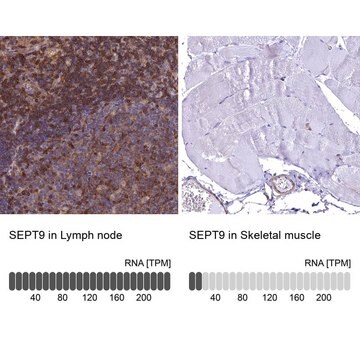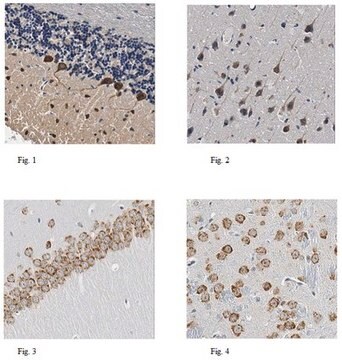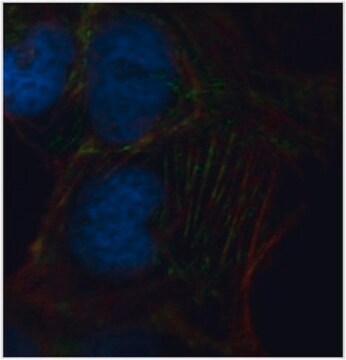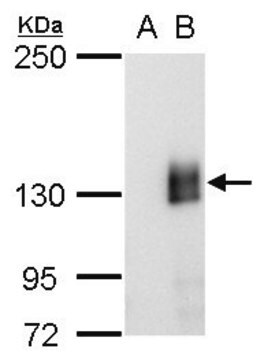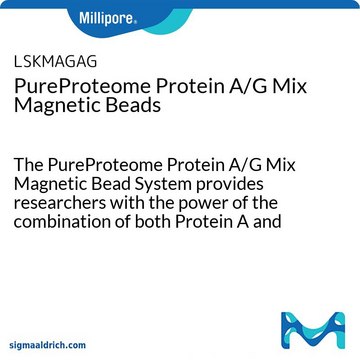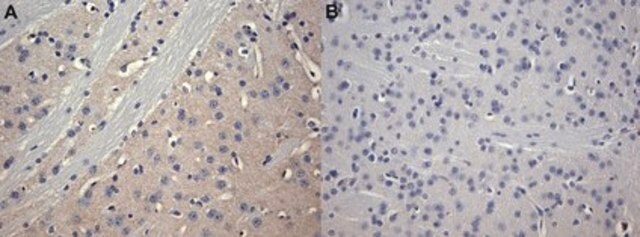SAB4200191
Anti-Septin 9 antibody, Rat monoclonal
clone Clone 1A6C2, purified from hybridoma cell culture
Synonyme(s) :
Anti-MLL, Anti-MSF, Anti-MSF1, Anti-NAPB, Anti-PEANUT-LIKE 4, Anti-PNUTL4, Anti-SEPT9, Anti-SINT1, Anti-SeptD1, Monoclonal Anti-Septin 9 antibody produced in rat
About This Item
Produits recommandés
Source biologique
rat
Conjugué
unconjugated
Forme d'anticorps
purified from hybridoma cell culture
Type de produit anticorps
primary antibodies
Clone
Clone 1A6C2, monoclonal
Forme
buffered aqueous solution
Poids mol.
~72 kDa
Espèces réactives
human, rat, monkey, mouse
Concentration
~1.0 mg/mL
Technique(s)
immunocytochemistry: suitable
immunohistochemistry: suitable
western blot: 2.5-5.0 μg/mL using L929, HeLa, 3T3 and COS-7 cell extracts
Isotype
IgG2a
Conditions d'expédition
dry ice
Température de stockage
−20°C
Modification post-traductionnelle de la cible
unmodified
Informations sur le gène
human ... SEPT9(10801)
mouse ... Sept9(53860)
rat ... Sept9(83788)
Catégories apparentées
Description générale
Immunogène
Application
- immunoblotting
- immunocytochemistry
- immunohistochemistry
- immunofluorescence
Actions biochimiques/physiologiques
Forme physique
Clause de non-responsabilité
Vous ne trouvez pas le bon produit ?
Essayez notre Outil de sélection de produits.
Code de la classe de stockage
10 - Combustible liquids
Point d'éclair (°F)
Not applicable
Point d'éclair (°C)
Not applicable
Faites votre choix parmi les versions les plus récentes :
Certificats d'analyse (COA)
Vous ne trouvez pas la bonne version ?
Si vous avez besoin d'une version particulière, vous pouvez rechercher un certificat spécifique par le numéro de lot.
Déjà en possession de ce produit ?
Retrouvez la documentation relative aux produits que vous avez récemment achetés dans la Bibliothèque de documents.
Global Trade Item Number
| Référence | GTIN |
|---|---|
| SAB4200191-200UL | 4061837868603 |
| SAB4200191-25UL |
Notre équipe de scientifiques dispose d'une expérience dans tous les secteurs de la recherche, notamment en sciences de la vie, science des matériaux, synthèse chimique, chromatographie, analyse et dans de nombreux autres domaines..
Contacter notre Service technique